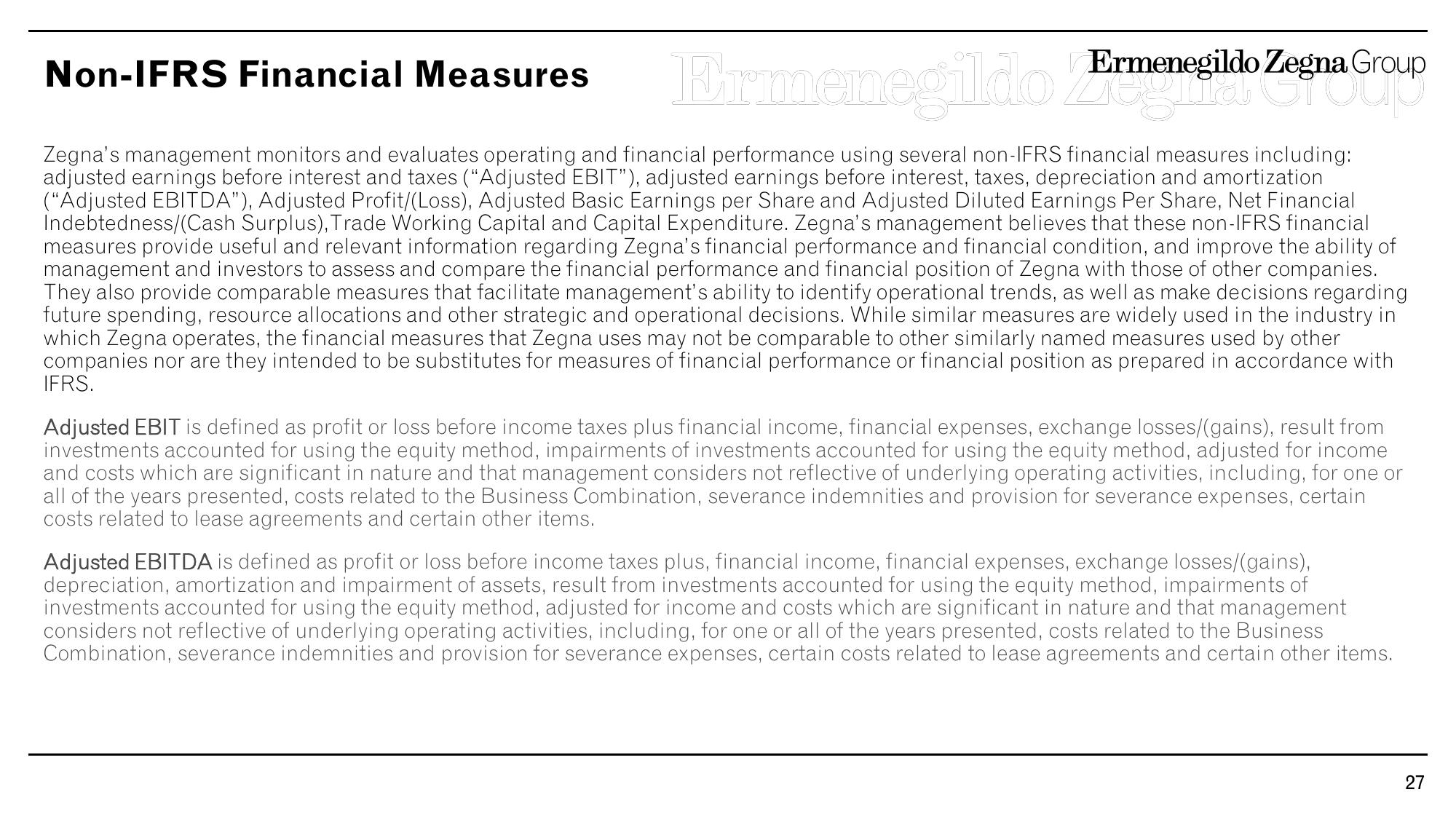Zegna Results Presentation Deck
Ermenegildo Ermenegildo Zegna Group
Zegna's management monitors and evaluates operating and financial performance using several non-IFRS financial measures including:
adjusted earnings before interest and taxes ("Adjusted EBIT"), adjusted earnings before interest, taxes, depreciation and amortization
("Adjusted EBITDA"), Adjusted Profit/(Loss), Adjusted Basic Earnings per Share and Adjusted Diluted Earnings Per Share, Net Financial
Indebtedness/(Cash Surplus), Trade Working Capital and Capital Expenditure. Zegna's management believes that these non-IFRS financial
measures provide useful and relevant information regarding Zegna's financial performance and financial condition, and improve the ability of
management and investors to assess and compare the financial performance and financial position of Zegna with those of other companies.
They also provide comparable measures that facilitate management's ability to identify operational trends, as well as make decisions regarding
future spending, resource allocations and other strategic and operational decisions. While similar measures are widely used in the industry in
which Zegna operates, the financial measures that Zegna uses may not be comparable to other similarly named measures used by other
companies nor are they intended to be substitutes for measures of financial performance or financial position as prepared in accordance with
IFRS.
Non-IFRS Financial Measures
Adjusted EBIT is defined as profit or loss before income taxes plus financial income, financial expenses, exchange losses/(gains), result from
investments accounted for using the equity method, impairments of investments accounted for using the equity method, adjusted for income
and costs which are significant in nature and that management considers not reflective of underlying operating activities, including, for one or
all of the years presented, costs related to the Business Combination, severance indemnities and provision for severance expenses, certain
costs related to lease agreements and certain other items.
Adjusted EBITDA is defined as profit or loss before income taxes plus, financial income, financial expenses, exchange losses/(gains),
depreciation, amortization and impairment of assets, result from investments accounted for using the equity method, impairments of
investments accounted for using the equity method, adjusted for income and costs which are significant in nature and that management
considers not reflective of underlying operating activities, including, for one or all of the years presented, costs related to the Business
Combination, severance indemnities and provision for severance expenses, certain costs related to lease agreements and certain other items.
27View entire presentation